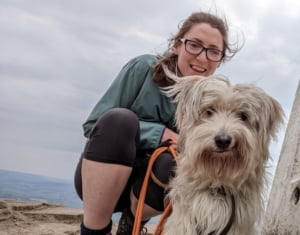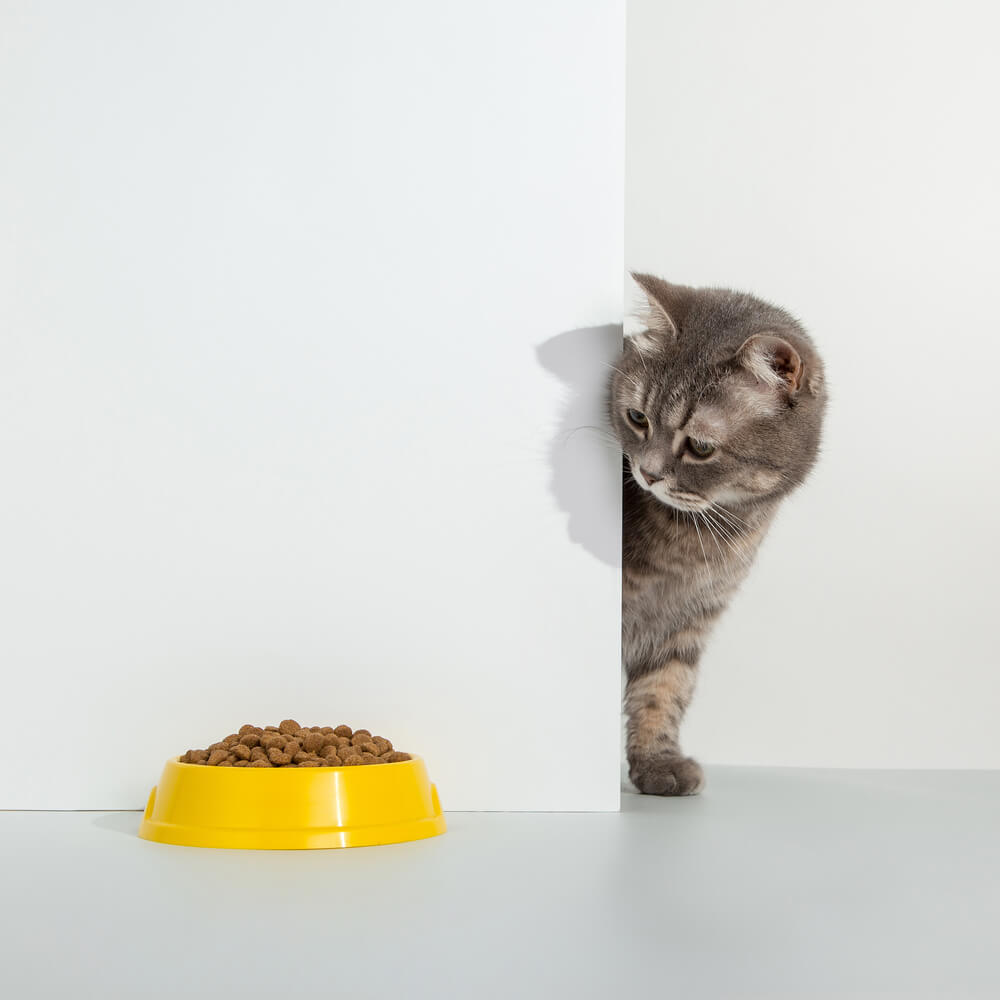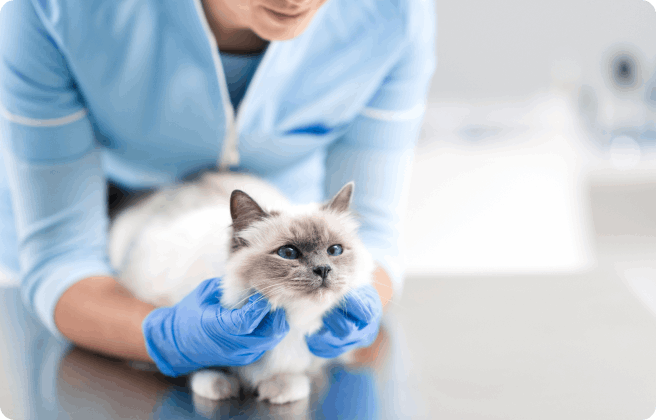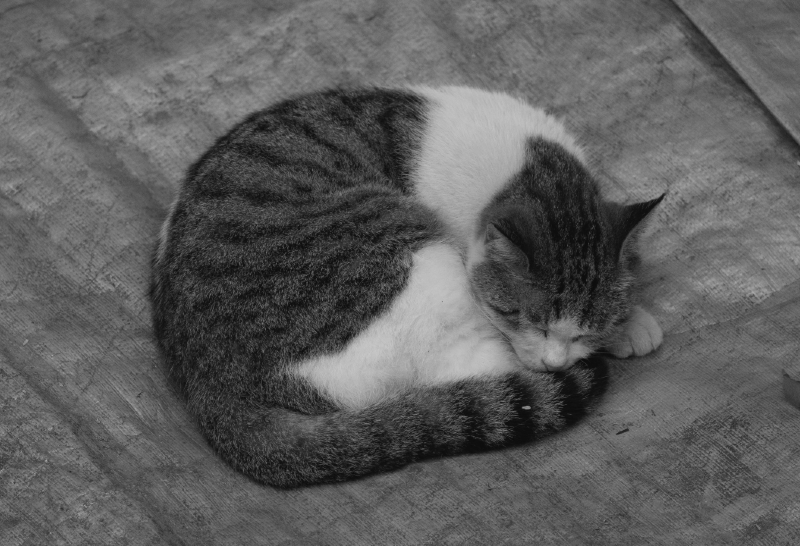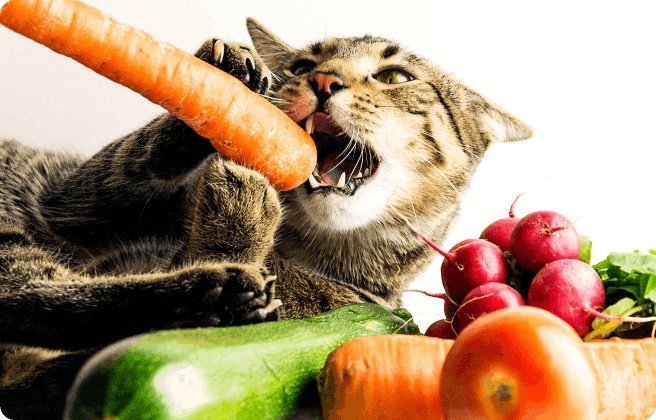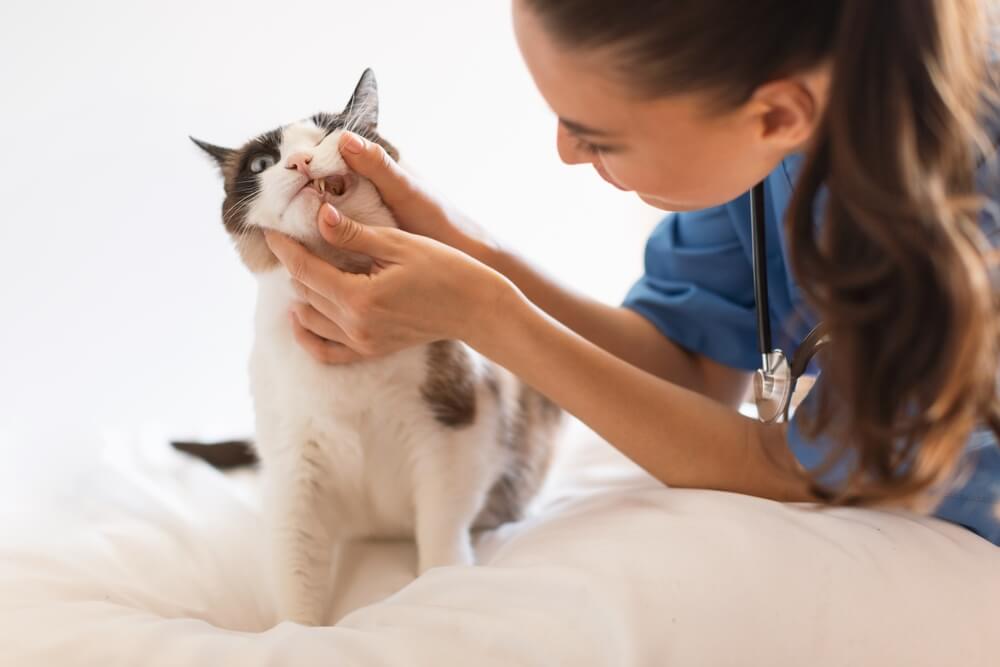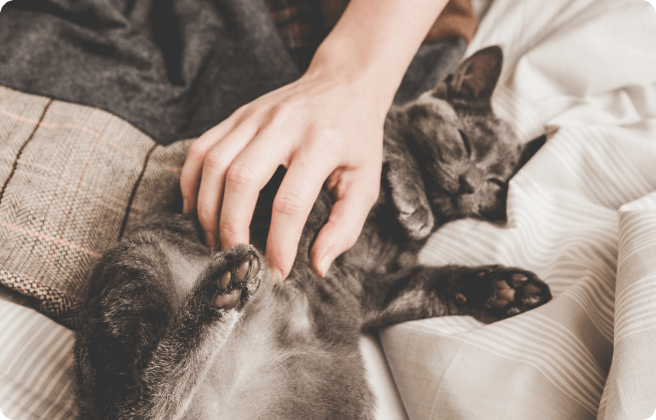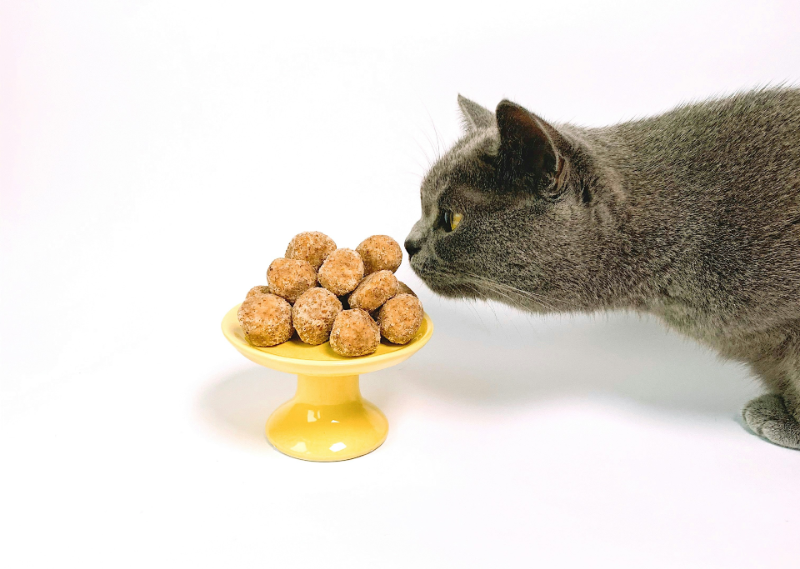
If your cat leaves its food, it can mean more than they’re simply a picky eater — it could indicate there’s a serious health problem under the surface and your cat needs help from an expert.
If your cat’s refusing to eat, or eating less than usual, it can point to an underlying health issue that might require urgent attention.
How long can your cat go without eating?
This is an important point to bear in mind if your cat stops eating, as if you leave it too long before seeking help, it can cause serious issues.
If it’s 24 hours since your cat last ate, you should speak to your vet. If it’s approaching 48 hours, take them to the vet immediately.
Otherwise, if your cat seems to have lost their appetite and is eating but less than usual, it could be caused by a number of issues. We’ve listed some of the main ones here:
- Dental problems
This is one of the major reasons why your cat might be turning their nose up at their food. If they’re suffering from problems with their teeth, such as cavities, decay or fractures, or are suffering from gum disease, it will be sore for them to chew, so they might find eating too painful.
- Serious illness
A number of illnesses can affect a cat’s appetite, either by making them feel nauseous or destroying their appetite altogether. The list of cat illnesses that can reduce their appetite is long, and can range from kidney or liver disease to cancer and pancreatitis.
If your cat has lost their appetite, don’t rule out a serious illness as the cause — check for other symptoms and contact your vet for further investigations.
- Stress or changes in routine
Some cats suffer from severe stress for a number of reasons, whether it’s moving house, changing their routine, or being separated. The key thing is noticing the signs of your cat being stressed, and helping them deal with the problem before they get too ill.
One of the ways they can display stress is through not eating, so if they’re leaving their food, see if you can spot any other signs of stress, such as hiding or displaying anger, which might indicate high stress levels.
- Age
Most cats’ appetites shrink as they reach their senior years and their needs begin to change. Their metabolism slows, physically moving becomes less appealing and/or painful due to arthritis, and as a result they require fewer calories. You may find their appetite decreases and they begin to leave some of the food in their bowl.
- An internal blockage
This could be caused by a partial obstruction of the GI tract, caused by the cat swallowing a small object such as a toy, which has the potential to become a full blockage if it’s not dealt with. Or it could be a linear blockage caused by a long item like yarn.
Any item stuck in the cat’s stomach or intestines will cause digestive problems, resulting in your cat losing their appetite. If you think they’re suffering from an internal blockage, you should get immediate assistance from your vet.
- A parasite
Sometimes, your cat losing its appetite — combined with vomiting — can be a sign they have a gastrointestinal parasite such as a tapeworm, roundworm or hookworm. Check for other symptoms that they might have a parasite, and ring your vet for further advice.
- The food itself
It may be simply that your cat does not like the taste or texture of the food you’re giving them. Switching to a different meat or alternative brand might solve the problem, and see your cat chowing down with gusto again.
Have a look through our Best Cat Foods to find out more about the types available.
How to help your cat if they’re not eating
If you need some advice on how to encourage your cat to eat, we have an article all about it, including more information on how long a cat can go without eating.
We uphold the highest editorial standards when creating the authoritative content pet parents rely on and trust.
Every piece of clinical content on the Cat Food Advisor is reviewed by our certified Veterinary Advisory Board, which consists of licensed veterinarians and medically certified specialists.
Our reviews are completely independent; we are not paid by any pet food company to promote their products favorably. We do not accept money, gifts, samples or other incentives in exchange for special consideration. For more information see our Disclaimer & Disclosure page.



